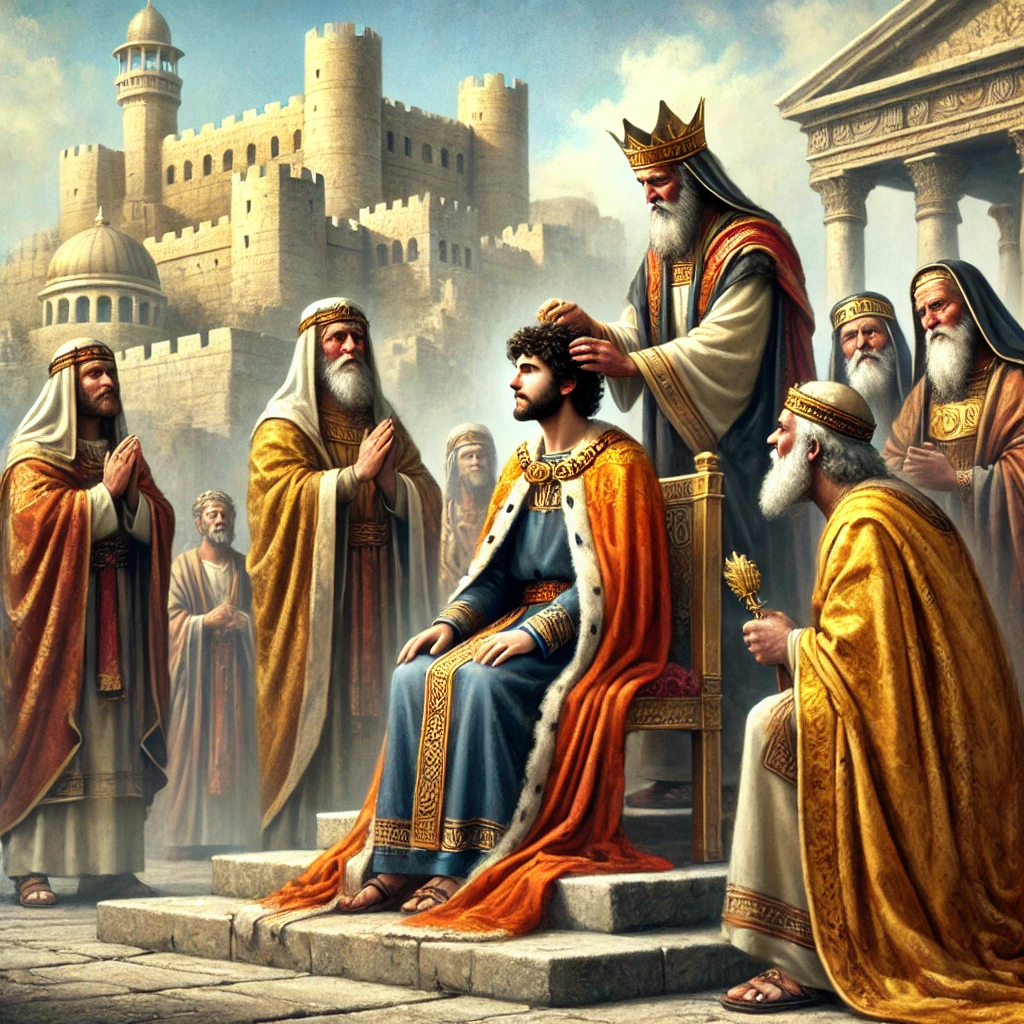Introduction.
2 Samuel Chapter 2 marks a pivotal moment in the history of Israel, as David is anointed king of Judah, beginning his reign in Hebron. This chapter lays the foundation for David’s eventual rule over all Israel and introduces the tensions between the house of Saul and David. The themes of leadership, divine calling, and unity are central to this chapter, offering valuable insights into the complexities of leadership transitions.
David Anointed as King of Judah.
Following the deaths of Saul and Jonathan, David seeks God’s guidance on his next steps. God instructs him to go to Hebron, where the men of Judah anoint him as their king. This anointing signifies the beginning of David’s reign, fulfilling the promise made when Samuel anointed him years earlier.
David’s move to Hebron highlights his reliance on God’s direction and his patience in waiting for the right time to ascend to leadership. His anointing by Judah reflects the tribe’s recognition of his leadership qualities and God’s favor upon him.
Tensions Between David and the House of Saul.
Meanwhile, Abner, the commander of Saul’s army, makes Ish-Bosheth, Saul’s surviving son, king over the northern tribes of Israel. This decision creates a division between the house of David and the house of Saul, leading to a period of conflict and rivalry.
The chapter also recounts a skirmish between the armies of Abner and Joab, David’s commander, at the pool of Gibeon. This confrontation foreshadows the struggle for unity in Israel and the eventual consolidation of the kingdom under David’s rule.
David’s Leadership in Times of Division.
Throughout this chapter, David demonstrates humility and reliance on God’s timing. Unlike Abner’s attempt to secure power for Ish-Bosheth, David waits for God to unify the kingdom in His time. David’s patience and faith underscore the importance of trusting God’s plan, even in the face of opposition and division.
Key Lessons from 2 Samuel Chapter 2.
- Seeking God’s Guidance: David’s decision to consult God before moving to Hebron highlights the importance of seeking divine direction in significant decisions.
- Patience in Leadership: David’s willingness to wait for God’s timing teaches us the value of patience and trust in leadership transitions.
- Navigating Division: The conflict between the houses of Saul and David reflects the challenges of leadership in times of division and the importance of working toward unity.
Conclusion.
2 Samuel Chapter 2 marks the beginning of David’s reign as king of Judah and sets the stage for his eventual rule over all Israel. David’s reliance on God, humility, and patience provide a powerful example of godly leadership in times of transition and conflict. As we reflect on this chapter, let us be encouraged to seek God’s guidance and trust in His timing in our own journeys.




